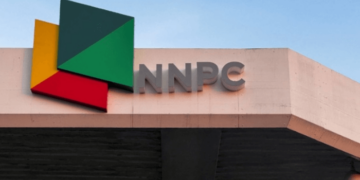Inflation to End 2025 Within 4–6% Range as BoG Signals Multi-Year Price Stability
Ghana is poised to enter a period of sustained price stability as inflation trends continue to improve, the Governor of the Bank of Ghana (BoG), Dr Johnson Pandit Asiama, has announced.
Delivering his opening remarks at the 127th Monetary Policy Committee (MPC) meetings, Dr Asiama stated that inflation is projected to settle between 4–6 percent by end-2025, before stabilising firmly within the target band in 2026. Headline inflation currently stands at 8.0 percent, while core inflation indicators remain contained between 5–7 percent, with expectations “anchored,” he noted.
According to the Governor, Ghana’s growth outlook remains favourable. Updated staff projections, backed by real-sector data, point to a steady expansion through 2026. He cited a strong harvest season, improved food supply conditions, enhanced foreign exchange liquidity, and an easing credit environment as key factors supporting the momentum. Growth is expected to be led by non-oil sectors – services, industry, and agriculture.

Dr Asiama outlined three major issues under deliberation at the 127th MPC meeting:
1. Pace of Disinflation and Real Interest Rate Path
With inflation declining faster than anticipated, real interest rates have risen significantly. While staff analysis indicates room for a gradual policy easing, the Governor stressed the need to preserve policy credibility and safeguard recent disinflation gains.
2. FX Market Reforms and Reserve Strategy
He noted improvements in transparency and market functioning following the rollout of the new FX operations framework. However, the central bank sees the need to step up public education efforts and diversify reserve assets to reduce concentration risks—particularly around the Bank’s gold holdings.
3. Financial Sector Stability and Credit Transmission
Although the banking sector remains broadly sound, Dr Asiama acknowledged risks relating to asset quality and recapitalisation for a few institutions. Strengthening the credit transmission mechanism, he said, is essential to sustaining the emerging growth momentum.
The Governor concluded by underscoring the importance of policy continuity as Ghana consolidates macroeconomic stability.
“Ghana’s macroeconomic path is stabilising, and the foundations for sustained growth are strengthening. The task before us is to protect this stability while supporting the real sector’s recovery. Our decisions today must reinforce confidence, signal predictability, and keep the economy on its path toward higher, job-rich growth,” he said.
The 127th MPC meetings are expected to provide key guidance on interest rates and policy direction as the economy transitions into a lower-inflation environment.









